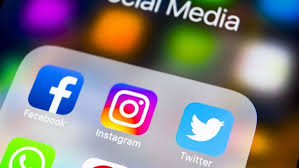 Reading about big tech controversies can make you sigh. Rant on. You may remember when the browser arrived. Maybe you knew about Mosaic in 1993 or Netscape Navigator in 1994. But you probably did not try them unless you were a geek -- because there wasn’t much to look at then on the so-called World-wide-Web. Apple’s Safari did not appear until 2003 and Google Chrome in 2008 – eventually these dominated the browser market, though three cheers for the existence of privacy-oriented browser Brave (2016) and search tool DuckDuckGo (2008). No doubt both will disappear into acquisitions. As for social media, things really got going with AOL Instant Messenger in 1993 -- then all was pretty quiet until 2003-4, when LinkedIn, MySpace, Skype, and Facebook all arrived.
Reading about big tech controversies can make you sigh. Rant on. You may remember when the browser arrived. Maybe you knew about Mosaic in 1993 or Netscape Navigator in 1994. But you probably did not try them unless you were a geek -- because there wasn’t much to look at then on the so-called World-wide-Web. Apple’s Safari did not appear until 2003 and Google Chrome in 2008 – eventually these dominated the browser market, though three cheers for the existence of privacy-oriented browser Brave (2016) and search tool DuckDuckGo (2008). No doubt both will disappear into acquisitions. As for social media, things really got going with AOL Instant Messenger in 1993 -- then all was pretty quiet until 2003-4, when LinkedIn, MySpace, Skype, and Facebook all arrived.
What you saw was what you got. All these tools were initially innocuous. That was before tracking our behavior online became pervasive and profitable. Then came Twitter in 2006. And thus the online megaphone was born. Purportedly useful as a business tool, the user is expected to sort out useful marketing messages among the claptrap. Did I want to know that Beyoncé was going to release a visual album? Uh, was I shown that because of one of my tweets about tech in nursing homes? And who knew that political reporting would devolve into reporting the tweets of politicians? As for Facebook? Its original intent was to enable visitors to compare two female student pictures side by side and let them decide who was more attractive." How charming. Thus it was a short hop to being used by teens to torment other teens. And threaten people and according to some, enable terrorists.
All the online world’s a stage. Even business-oriented folk who use the current tools can’t help themselves – with so-called news feeds intermingled among a cacophony of product news and announcement posts, they must also weigh in by re-tweeting or ‘liking’ (a stupid term) something that some wannabe megaphone has endorsed. Twitter's 'Microblogging' (such a flawed term!) is a jumble of long paragraphs comprised of three words and 19 hashtags. The day that Twitter expanded the number of characters to 280 was a sad day. Why’d they do it? It 'allowed users to express more of their thoughts without running out of room to tweet.' Sigh.
What went wrong? And gradually things got out of hand, leading to talk (that’s all) of breaking up companies that have gotten too powerful. The use of Twitter became intertwined with politics (including internal work politics) which has led to people losing jobs, to death threats, led to tweet flagging and reporting sensitive media. And that’s just Twitter. Google search ranking has generated some very-public battles, as with Yelp and led to numerous lawsuits -- including one about tracking you when you are searching in ‘private’ mode, another oxymoron. And last (for this post anyway), there’s Google's YouTube and its so-called content oversight. In terms of videos posted online, who competes with YouTube, anyway? Rant off.

 Reading about big tech controversies can make you sigh
Reading about big tech controversies can make you sigh